Why is the state capital Juneau and not Anchorage?
- Author
- KTOO Public Media
- Published
- Sat 14 Jun 2025
- Episode Link
- https://feeds.ktoo.org/link/20426/17051356/why-is-the-state-capital-juneau-and-not-anchorage
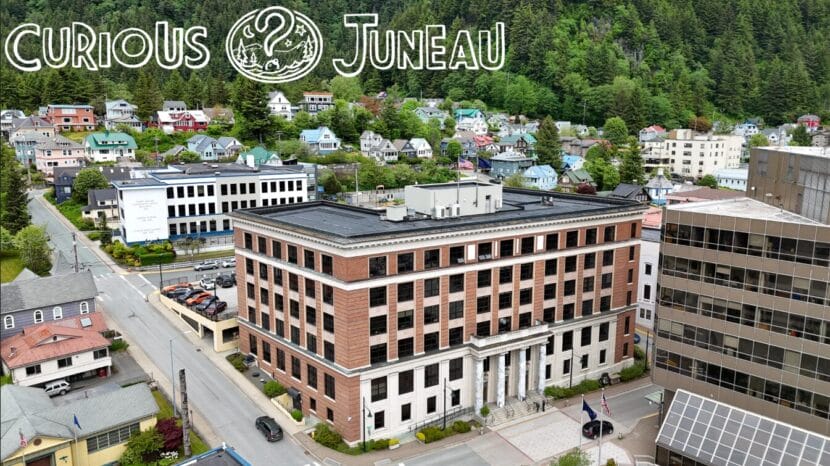
Listen to this story:
It’s a question that’s swirled around town for decades, often with some heated debate: Why is the state capital Juneau and not Anchorage?
Kirk Smith is a volunteer with the Juneau-Douglas City Museum, which works together with the Capitol Building to provide tours during the summer tourism season. He says he often finds himself having to answer the question.

“The question does come up quite frequently, ‘Why is a city that’s inaccessible by road or rail, why is it the capital?’’ he said.
For this Curious Juneau, a listener asked KTOO to take a look at where the question — and the debate — stand.
Smith has been giving tours of the Alaska State Capitol since 2018, so he knows the building, its history and its artwork like the back of his hand. He starts each tour in the Senate Finance Committee hearing room, where a painting of Sitka hangs on a wall.
“Major issues that affect Alaskans are decided in this room,” he said.
He explained that the painting is there because Juneau wasn’t actually the first capital of Alaska — Sitka was. But that changed in 1906.
“Juneau was the largest and wealthiest and most successful city in the territory in 1900 when the Congress actually mandated moving the capital to Juneau,” he said. “Anchorage existed in that time, in a sense, it was a small community.”
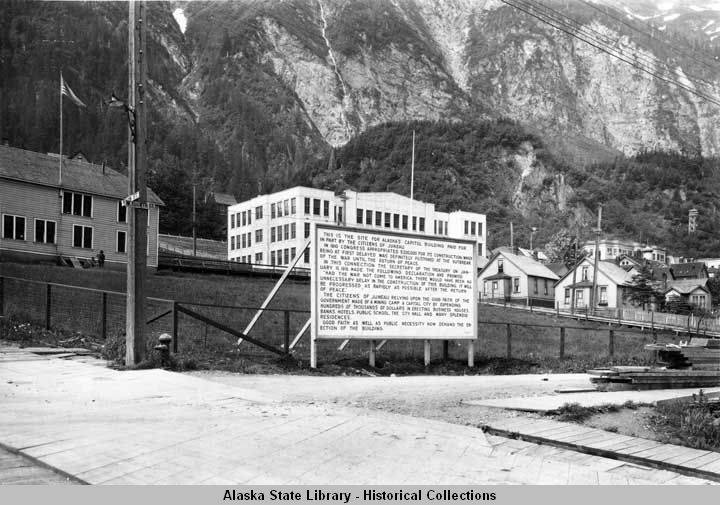
But Juneau wasn’t the state capital yet because Alaska wasn’t a state yet; it was a territory. The Capitol building was built in 1929 and opened in 1931 as a federal building and territorial building.
“I like to refer to the architectural style as ‘early 20th-century American post office,’” Smith said.
The federal government then gifted the building to the state when Alaska became the 49th state of the Union in 1959.
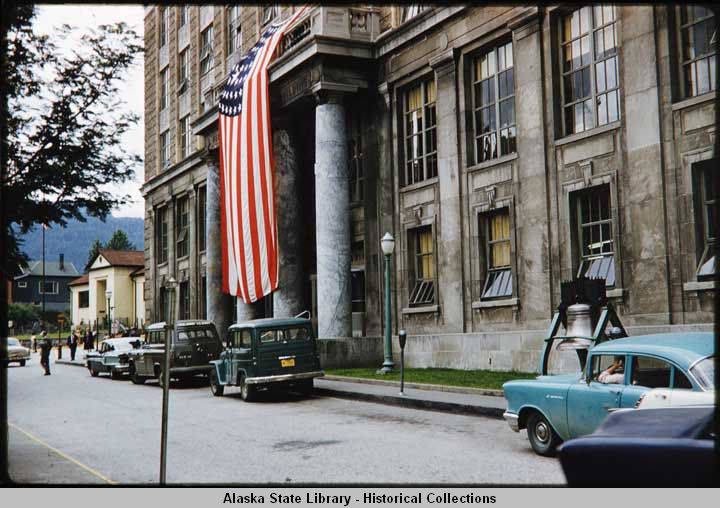
In the decades since then, there have been multiple attempts to move the capital to a more populated area. Some of them almost succeeded. In 1974, Alaska voters passed an initiative to move the capital to the road system. But a measure to fund the move failed, as did four other capital move votes in 1960, 1962, 1994 and 2002.
Juneau Democratic Sen. Jesse Kiehl said that, despite the many failed attempts, there’s always going to be a new effort to move the capital onto the road system.
“It’s a little bit like a zombie movie. It’s never all the way dead,” he said. “You can count on it to come back smelly and shambling and still a problem that has to be dealt with.”
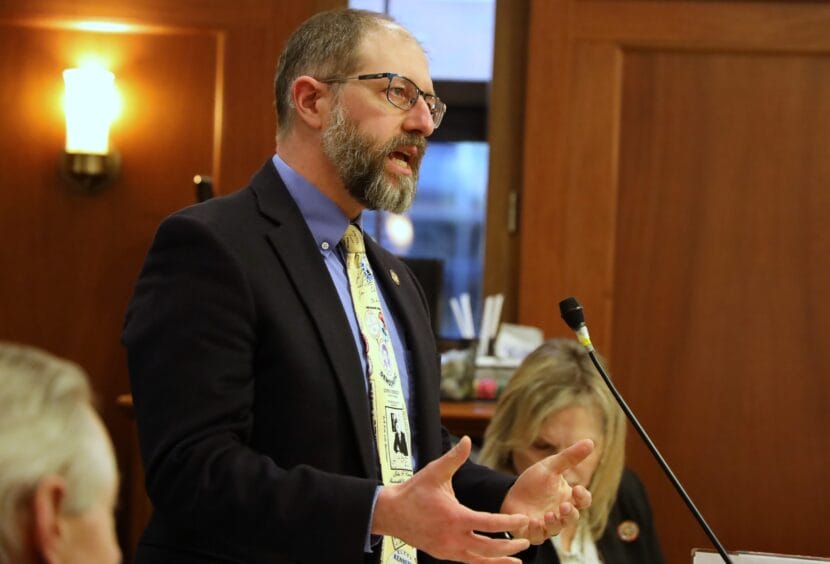
When Juneau became the territorial capital in 1906, Anchorage wasn’t the hub that it is today. But now, Anchorage’s population is roughly nine times the size of Juneau’s population.
Over the years, a lot of state jobs have migrated there. So much so that the movement coined the name Capital Creep — the slow trickle of state jobs moving away from Juneau to Anchorage.
Kiehl said he’s obviously biased because he lives here, but argues there are numerous reasons why Juneau should remain the capital despite the movement away.
“Oh, good Lord in heaven, the price tag,” he said. “I have no idea what that price tag would be — hundreds and hundreds of millions of dollars at least. And that’s probably a low-ball estimate.”
He said that Juneau’s identity as a town is intertwined with being the capital of the state. Other states like California, New York, Texas and Montana all have their capitals in locations that aren’t the most populated areas of their respective states.
But House Rep. George Rauscher, R-Sutton, said holding the Alaska Legislature at the Alaska State Capitol in Juneau is a disservice to Alaskans because it’s hard to get to Legislators.
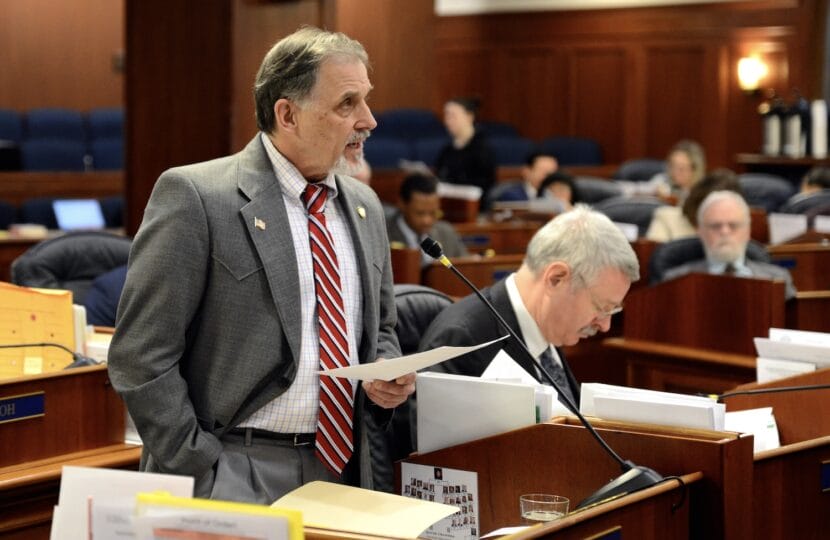
“It costs so very much money for our legislative constituents to come down and see us,” he said.
Since 2017, Rauscher has introduced a bill each session in the Alaska Legislature seeking to have lawmakers convene in Anchorage instead of Juneau. He argued that Juneau is inconvenient and expensive for everyone who is not local and too far from the state’s big population centers.
“This is the only state on the planet where people have to take a boat or an airplane to go to do the work of the people,” he said.
His bill didn’t go anywhere last session — nor has it ever in previous years — but there’s always the chance it could get picked up next session in January.
But every time the issue springs up, so does the opposition.
“As long as we remain dedicated and vigilant, I think we can continue to hold this off and keep this smelly old zombie that tries to shamble out of the crypt periodically from threatening the town,” Kiehl said. “But you’ll never stop it from getting reanimated by somebody somewhere.”
Curious Juneau
Are you curious about Juneau, its history, places and people? Or if you just like to ask questions, then ask away!

